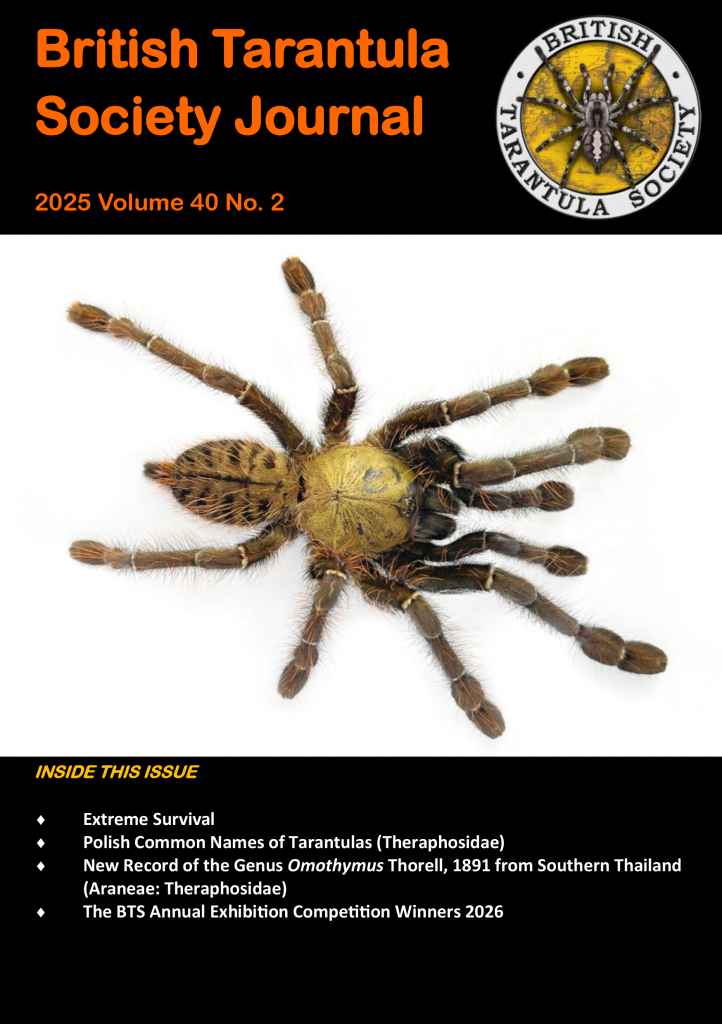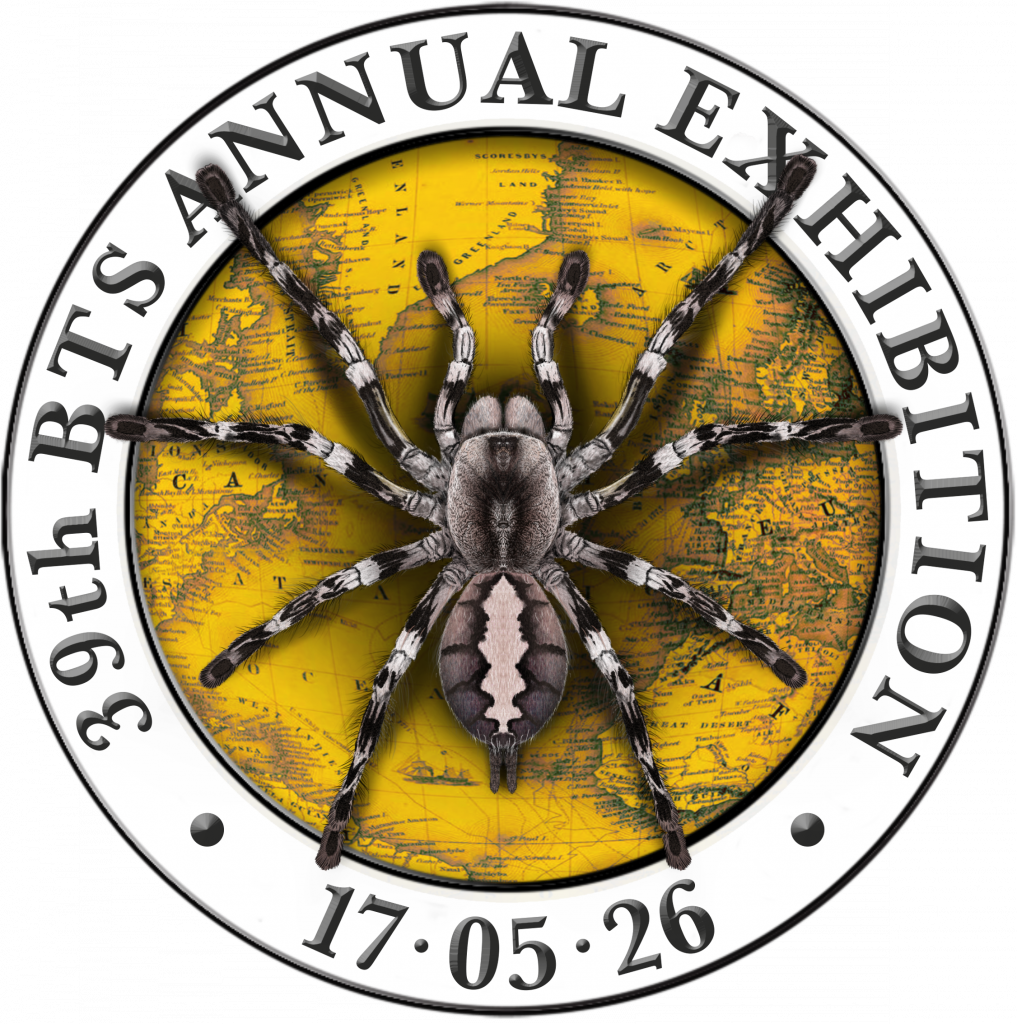BTS Lectures and Dinner – Aztec West Hotel & Spa
7th March 2026
Special Guest Lecturer: Volker von Wirth
Title: Asian Tarantulas – fascinating and exotic
Bio: I am 58 years old and work as a branch manager for a Fressnapf store (the largest pet store chain in Europe) in southern Germany.In my free time, I am a citizen scientist studying the biology of tarantulas, with a particular focus on the systematics and phylogeny of tarantulas from Asia. I have published numerous articles and books on this topic, including the best-selling book on keeping tarantulas in Germany, the Czech Republic, Hungary, and Spain. I am responsible for numerous original descriptions of tarantulas or have contributed as co-author to such descriptions.
Summary: The lecture presents facts about the biology of Asian tarantulas. I will also discuss the keeping of these burrowers in particular and introduce a special type of terrarium for these species, which I developed in the late 1980s. The lecture will be rounded off with a few portraits of very beautiful and interesting Asian tarantulas.
Guest Speaker: Steven A Trim BSc, MSB, CBiol
Title: I’m not quite dead yet! Peculiarities of the tarantula heartbeat and circulatory system
Bio: CSO Ventera Bio Ltd, Kent. Chair of the Veterinary Invertebrate Society.
Summary: How do I tell if my tarantula is dead? With vertebrates we have a pretty good measure of dead, but there are still surprises. However, invertebrates are far more challenging as the line between life and death is not very well understood. When the spider in front of you has no movements and no detectable heart rate for over 20 minutes it would be logical to conclude it has died, unless this state was artificially induced. The spider heart is a long tubular organ located on the dorsal midline of the opisthosoma. During contractions haemolymph is pumped through the aorta into the prosomal and from their into the limbs where this pressure aids locomotion. The return circulation is through venus synuses and on relaxation, ostia open and allow the heart to refill. In recent years techniques have been developed to record the theraphosid heart rate via ultrasound doppler. Just like vertebrates, the tarantula heart rate appears to be responsive to stress and chemical agents such as carbon dioxide (CO2) and organic anaesthetics. A vascular ultrasound can be carefully placed on the heart along the dorsal opisthosoma to hear (and see) the heartrate in awake spiders depending on their disposition. However, during deep anaesthesia, their heartbeat appears to stop along with response to stimuli and movement! If this was a mammal it would be dead! But not so, tarantulas (and probably many other invertebrates) incredibly recover from this dead like state! Where there is no detectable fluid movement through the heart. In this asystole (no heartbeat) state the limb pressure appears physiological as the limbs are relaxed and not contracted as in death. This presentation will outline current knowledge of the tarantula cardiovascular system and open the door into the apparently edge of life and what this means for veterinary diagnosis and treatment ideas. And also provide practical tips how to listen into a spider heartbeat.
Bio: coming soon
Guest Speaker: Marie Louise Célérier
Title: Results about tarantulas reared in laboratory conditions and in particular about Stromatopelma calceatum and Psalmopoeus cambridgei.
Bio: Professor of the Universities ( Paris Sorbonne University, formerly named Pierre and Marie Curie University , and before Paris 6 University…) and Assistant- Director to the IUFM of Paris( Institute for formation of school Masters). So a teacher and a research worker. I am retired since 2006. In spring 1971 , I defended a first thesis about energy budget of Agelenidae (Tegenaria and Eratigena)). During summer 1971 I was in Lamto (Ivory Coast) to observe the spiders of the savanna and to test to breed them. In autumn 1981 I defended my State thesis on energy budgets of 6 species of spiders from the Lamto savanna . Stromatopelma calceatum was one of the species and I continued to rear them until my retirement, as other tarantulas .Collaborations with colleagues of chemist and biochemist led to study the venom of different species.
Guest Speaker: TBC
Title: TBC
Bio:coming soon
______________________________________________
Guest Speaker: TBC
Title: TBC
coming soon
Summary: TBC
All the information on the 2026 line up will appear here when we have the information.



